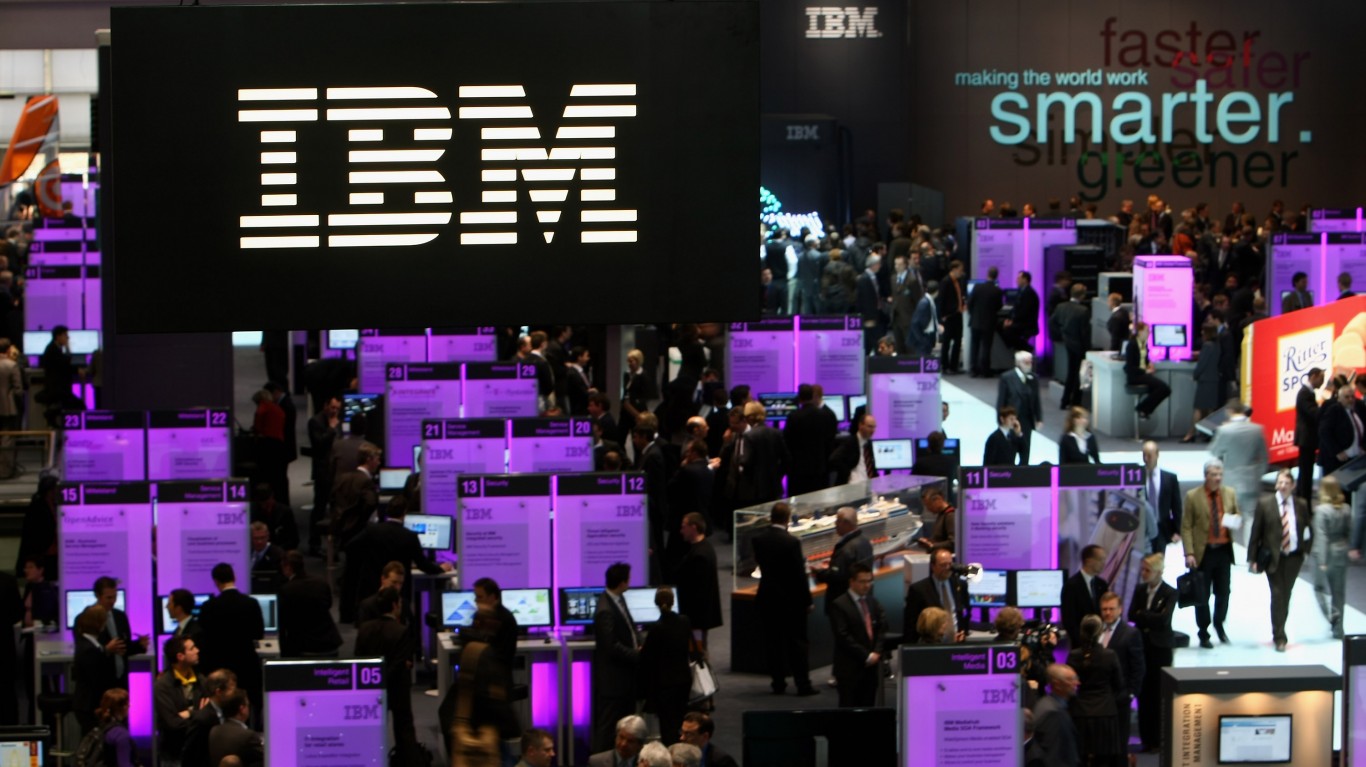Technology
IBM Earnings Still Not Migrating From Baby Boomer World to Millennials

Published:
Last Updated:

International Business Machines Corp. (NYSE: IBM) is trying to get away from its “Big Blue” image now that it has finally completed its mega-acquisition of Red Hat. This merger is going to potentially change how its stock is evaluated ahead, but as of the third quarter of 2019, the post-earnings reaction looked and felt like the same old negative reaction that its shareholders have become used to.
IBM did manage to exceed analyst expectations with a third-quarter profit of $2.68 per share outside of items. The results beat the Refinitiv consensus estimate of $2.67 per share. Its net income fell to $1.87 per share ($1.67 billion) from $2.94 per share ($2.69 billion) a year ago.
IBM’s total revenue fell by almost 4% to $18.03 billion in the third quarter, short of Refinitiv’s consensus estimate of $18.22 billion. The company did indicate that revenues would have dropped by only 0.6% excluding the impact from currencies and business divestitures. Unfortunately, IBM’s new businesses and strategic imperatives just are not able to offset the old core businesses fast enough to move the needle for IBM to be considered attractive to investors who want growth.
In a post-acquisition world with Red Hat under the IBM umbrella, the company hopes to (and needs to) grow its subscription and recurring revenues. The company’s technology services unit showed a 5.6% drop to $6.70 billion in the quarter. Here is how its growth segments performed after adjusting for currencies: Revenue for Red Hat was up 20%; Cloud & Cognitive Software was up 8%; Cloud revenue was up 14%.
IBM ended the third quarter with $11.0 billion of cash on hand and its total debt was $66.3 billion. With free cash flow of $12.3 billion in the trailing 12-month period, IBM has reduced its debt by $6.7 billion. While it paid out $1.4 billion in dividends during the quarter, IBM barely spent $100 million in buybacks as the company has suspended buybacks to help pay for the Red Hat acquisition and to lower its debt.
After its August 2, 2019, post-merger update, IBM’s press release on Wednesday noted guidance for full-year GAAP earnings to be at least $10.58 per share and non-GAAP earnings of at least $12.80 per share. The company continues to expect free cash flow of approximately $12 billion, with a realization rate over 100% of GAAP net income.
Ginni Rometty, IBM’s board chair, president and chief executive officer, said in the report:
In the third quarter, as we continued to help clients with their digital reinventions, we grew revenue in our Cloud & Cognitive Software segment and in Global Business Services. Our results demonstrate that clients see IBM and Red Hat as a powerful combination and they trust us to provide them with the open hybrid cloud technology, innovation and industry expertise to help them shift their mission-critical workloads to the cloud.
Shares of IBM closed down 0.6% at $142.11, and they initially traded down by 3.6% at $137.00 in Wednesday’s after-hours session. The 52-week trading range is $105.94 to $152.95, and the Refinitiv consensus analyst price target was $153.05 ahead of earnings.
The one consistent draw for IBM shareholders is that the company’s dividend yield will be 4.7%, if the after-hours share price remains the same when the market opens on Thursday.
Thank you for reading! Have some feedback for us?
Contact the 24/7 Wall St. editorial team.